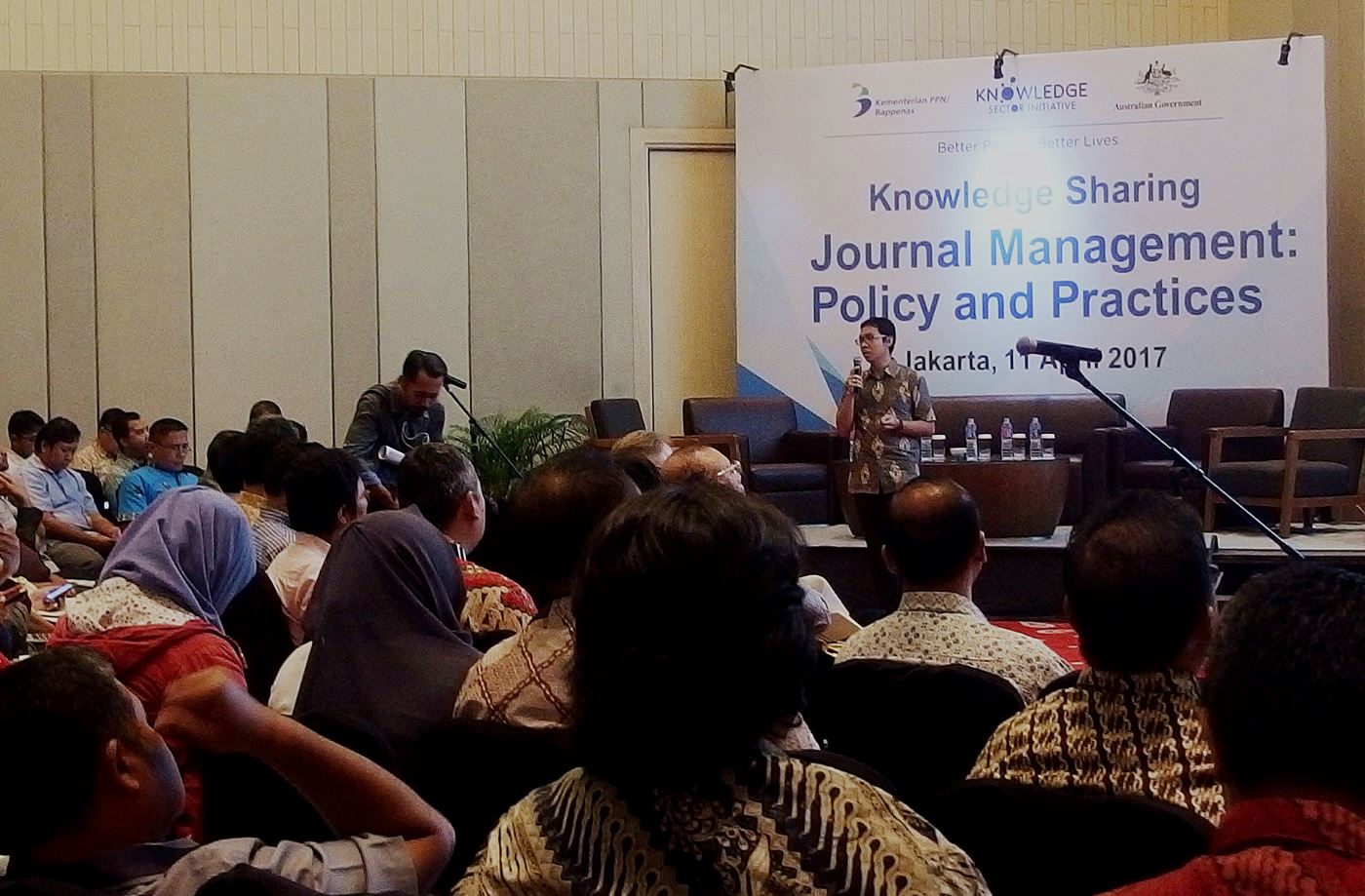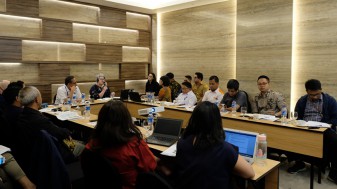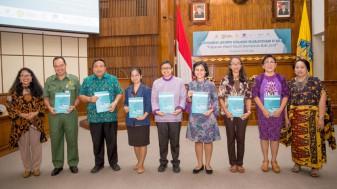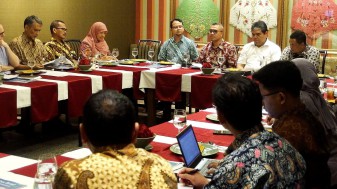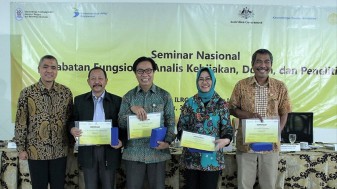by Whisnu Yonar
On 11 April 2017, KSI facilitated a half-day knowledge sharing session about Journal Management: Policies and Practices, in collaboration with Kemenristekdikti (Ministry of Research, Technology and Higher Education), sharing a diagnostic study on policy journal. The seminar aimed to provide an avenue for knowledge exchanges and to strengthen interactions between policy makers, academics, and researchers in responding to the shortage of well-communicated research findings to inform national policymaking. More than 50 attendees engaged in the discussion on how to improve quality publications and journal management as a solid source of information and strategic medium to communicate both theoretical and practical studies for better policy making in Indonesia.
The first session was a presentation by Fajri Siregar (University of Indonesia) on the findings of a KSI supported Policy Journal Diagnostic Study. The study aims to identify policy journals which have influence in policy making process and become policy makers’ reference in formulating policy. The findings show that most policy makers today rarely use scientific publications as a references in developing public policy. One main reason for this is the relative absence of multi-disciplinary journal that impedes the communication of quality knowledge and evidence for complex policy issues. The majority of policy makers were more likely to use newspapers and books as their source of information.
The second part of the seminar was a presentation of three prominent policy journals that have managed to overcome some of these challenges. Jurnal Perempuan presented its experience in managing a journal from scratch. Jurnal Perempuan began in 1996 as the first feminist journal in Indonesia. Escalating the issue of women empowerment and rights, its distribution began in campuses among student activists. In 2012, its management changed its strategy to be more professional by applying peer-review process and professional editing. It was accredited by LIPI in 2016. Jurnal Perempuan is not only academic based media, but it is also a room for public education and campaign on women related issues.
The third journal presented was Jurnal Studia Islamika who has just been awarded Best Journal by Kemenristekdikti and is one of the very few social science journals in Indonesia that is internationally accredited. Studia Islamika was initiated by a tightly-knit networks of scholar-activists in the 1990 at the Jakarta State University of Islamic Studies (UIN Jakarta). From the very beginning, a formal and tight selection process for published articles was applied. Since 2013, this journal adopted the Open Journal System and is now accessible on-line.
Although it was challenging to acquire accreditation from Kemenristekdikti, Prisma is one of the oldest social development journals in Indonesia. Prisma was a reference not only for activists, practitioners and academics but also reform-minded policymakers during the authoritarian era. With the fall of the authoritarian New Order in 1998, Prisma’s raison d’ was in a way over, and the journal went into a self-imposed “coma” until 2009. Learning from the past experience and in order to sustain in the future, the organizational strategy of Prisma needs to evolve and be more responsive to the current needs and trend. Just recently the organization repositions itself as the independent Prisma Resource Centre, focusing on learning, education, and publication.
With social media and on-line access, journal management is more challenging than ever, as few are able to survive independently. Financial support will be always needed from another business unit within their organization. But journals are also more crucial than ever, to communicate research and studies for better policy making.

